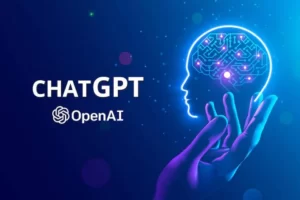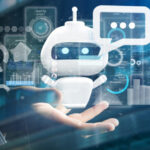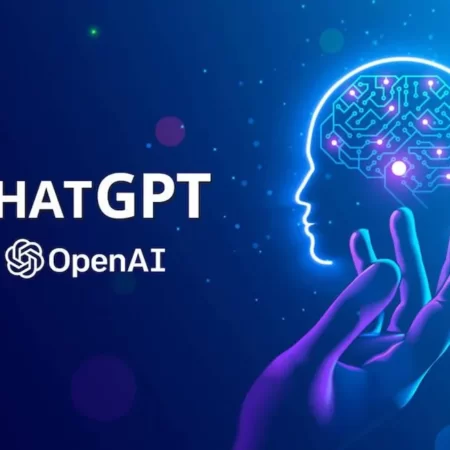Artificial intelligence (AI) has emerged as one of the most transformative technologies of the 21st century. It refers to the development of computer systems that can perform tasks that typically require human intelligence. From self-driving cars to virtual personal assistants, AI has revolutionized various industries and has the potential to reshape our daily lives. In this article, we will explore the intricacies of artificial intelligence, highlighting its significant points, addressing frequently asked questions, discussing its pros and cons, and ultimately providing a comprehensive verdict on its impact on society.

Important Points:
- Machine Learning and Deep Learning: The foundations of AI lie in machine learning and deep learning techniques. Machine learning enables computers to learn from data and improve their performance over time, while deep learning uses neural networks to simulate human decision-making processes.
- Automation and Efficiency: AI has the capability to automate mundane and repetitive tasks, leading to increased efficiency and productivity in various sectors. From manufacturing to customer service, AI-powered automation streamlines processes, reduces errors, and frees up human resources for more complex and creative tasks.
- Healthcare and Medical Advancements: AI is revolutionizing the healthcare industry by enabling early disease detection, personalized treatment plans, and improving patient outcomes. It aids in medical image analysis, drug discovery, and assists doctors in making accurate diagnoses, thereby transforming the healthcare landscape.
- Enhanced Customer Experience: AI-driven technologies such as chatbots and virtual assistants have transformed customer service by providing 24/7 support, personalized recommendations, and efficient query resolution. These advancements improve customer satisfaction, increase sales, and foster customer loyalty.
- Ethical Considerations: As AI becomes more integrated into our lives, ethical concerns arise. Issues such as privacy, bias in algorithms, and job displacement need careful consideration. The responsible development and deployment of AI systems are crucial to ensure fairness, transparency, and accountability.

FAQ’s
How does AI differ from traditional programming?
AI differs from traditional programming as it enables machines to learn from data and adapt their behavior accordingly, rather than following explicit instructions. Traditional programming relies on predefined rules, while AI systems learn patterns and make predictions based on training data.
Can AI replace human jobs?
AI has the potential to automate certain job functions, leading to job displacement in some sectors. However, it also creates new opportunities and job roles, particularly in areas such as AI research, data analysis, and algorithm development. The impact of AI on employment depends on how societies adapt to these changes.
Are AI systems biased?
AI systems can inherit biases from the data they are trained on, leading to discriminatory outcomes. Bias can occur due to the data used, the algorithms employed, or even the user interactions. It is essential to address bias in AI systems to ensure fairness and inclusivity.
Is AI a threat to humanity?
While some envision dystopian scenarios, AI itself is not inherently a threat to humanity. However, there are concerns related to AI safety and the potential misuse of advanced AI technologies. Responsible development and robust regulations are necessary to mitigate risks and ensure AI benefits humanity.
Can AI be creative?
AI systems can exhibit creativity by generating new ideas, art, music, and even writing. They can learn patterns from vast datasets and produce novel outputs. However, the current state of AI creativity is limited, as it lacks the human capacity for emotions, intuition, and context.

Pro’s
- Increased Efficiency and Productivity: AI automation reduces human error, increases speed, and improves overall efficiency, leading to enhanced productivity across various industries.
- Improved Decision Making: AI systems analyze vast amounts of data quickly and provide valuable insights, enabling more informed and accurate decision-making. This can be particularly beneficial in areas such as finance, healthcare, and business operations.
- Advancements in Healthcare: AI has the potential to revolutionize healthcare by improving disease detection, enabling personalized treatments, and enhancing patient care through data analysis and predictive modeling.
- Enhanced Customer Experience: AI-powered chatbots and virtual assistants provide personalized and prompt customer service, leading to improved customer satisfaction, increased sales, and stronger customer loyalty.
- Innovation and Creativity: AI algorithms can assist in generating new ideas, designs, and solutions by analyzing vast amounts of data and identifying patterns that humans might overlook. This can lead to breakthroughs in various fields, including scientific research and product development.

Con’s
- Job Displacement: The automation of certain tasks by AI systems can result in job displacement, particularly in industries that heavily rely on repetitive and routine work. This can lead to unemployment and the need for upskilling or retraining the workforce for new job roles.
- Ethical Concerns: AI raises ethical considerations, such as privacy breaches, algorithmic bias, and the potential for misuse of advanced technologies. Clear guidelines and regulations are needed to address these concerns and ensure responsible AI development and deployment.
- Dependence and Reliability: As society becomes more reliant on AI, there is a risk of overdependence on these systems. AI technology is not infallible and can suffer from technical glitches or malfunctions, leading to potential disruptions and errors.
- Lack of Human Intuition and Emotion: AI systems lack human intuition, emotions, and contextual understanding, which can limit their decision-making abilities in complex and nuanced situations. This can be challenging in areas that require empathy, creativity, and subjective judgment.
- Data Privacy and Security: AI relies on vast amounts of data, raising concerns about privacy and data security. The collection, storage, and use of personal information require robust safeguards to protect individuals’ rights and prevent unauthorized access or misuse of data.

Final Verdict:
In conclusion, artificial intelligence is a transformative technology with the potential to revolutionize various industries and aspects of our lives. While AI offers numerous benefits such as increased efficiency, improved decision-making, and enhanced customer experiences, it also comes with challenges and concerns that need to be addressed. Job displacement, ethical considerations, and data privacy are among the key issues that require careful management and regulation. By adopting a responsible and ethical approach to AI development, we can harness its potential while mitigating risks. Striking a balance between human expertise and AI capabilities is crucial to ensure that technology serves as a tool for societal progress. By fostering collaboration between humans and machines, we can unlock the full potential of artificial intelligence and shape a future where it augments our capabilities and improves our lives. It is essential to prioritize ongoing research, transparency, and ethical guidelines to maximize the benefits of AI and build a future where technology and humanity coexist harmoniously.
“The Pros and Cons of AI: Navigating the Opportunities and Challenges”












No Comment! Be the first one.